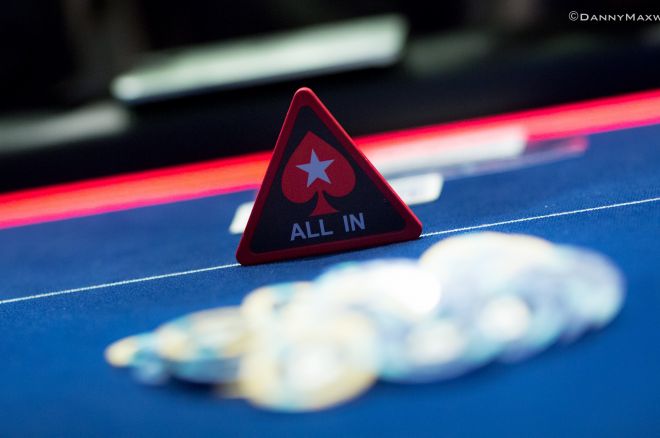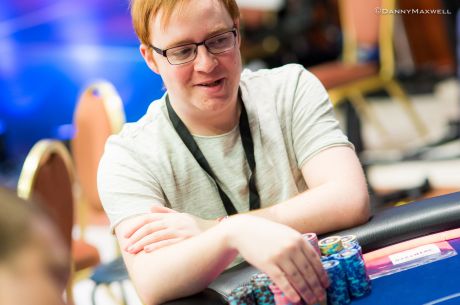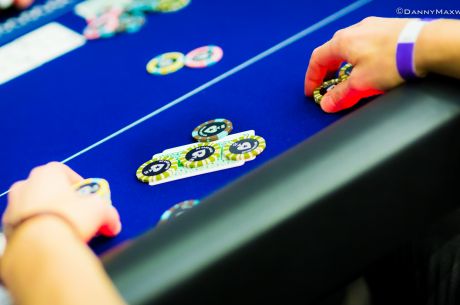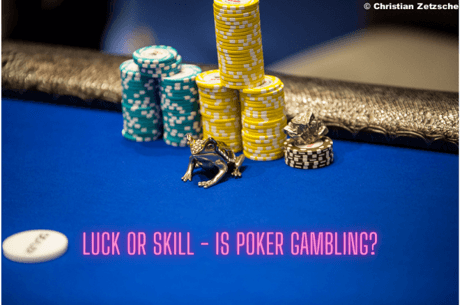You Can’t “Win Back” What You Lost in a Previous Session -- Here’s Why

Our language and literature is peppered with a variety of ways of saying that you can’t go back in time.
About 2,500 years ago, the philosopher Heraclitus said, as quoted later by Plato, “Everything changes and nothing remains still…. You cannot step twice into the same stream.” It’s no longer the same water the second time, and hence not the same stream.
The North Carolina writer Thomas Wolfe titled one of his books You Can’t Go Home Again. Home, he had discovered, would never be the same place that you remembered. The British physicist Arthur Eddington coined the now-common phrase “the arrow of time” to convey the truth that time moves in one direction only. When Shakespeare’s MacBeth is fretting over having committed a murder, Lady MacBeth tells him, “What’s done cannot be undone.”
Some poker players stubbornly resist this wisdom. They think they can revisit and even undo the past. Or at least that’s what is suggested by the way they speak of things.
I have a friend and fellow poker blogger who is constantly writing things like “Last night I lost $185, but I won it all back tonight, plus another $50.” He’s hardly alone. I hear such statements from poker players frequently. If you are among the many who have said, or even thought, such things, and you see nothing wrong with thinking that way, then you’re my target audience for what follows.
Suppose that my friend goes to enter his $235 win into his poker log, and his eye happens to fall on an entry from about two years ago — a loss of exactly $235. Would he now say, “Oh, I guess I didn’t win back last night’s loss plus an extra $50. I actually won back my loss from December 9, 2013”? I doubt it, because that is self-evidently a ridiculous notion. The numbers happen to be the same, but one event had nothing to do with the other. Right?
So why does it make any more sense to say that he won back what he had lost last night? How is the connection between that loss and this win any more real than the connection between today’s result and that from two years ago? The latter may feel more directly connected, but that’s just an illusion created by the proximity in time.
This is an example of a whole category of fallacious thinking that is formally known as “the availability heuristic.” We illogically put more emphasis on recent events because we remember them better than we do things from the more distant past.
Suppose the $235 loss and the $235 win were separated by the same two years, but with no poker having been played in between. Would they then be connected in such a way that it would make sense to say that he “won it all back”? Surely not. If you agree with that, then logically you have to agree that the shorter time interval — 24 hours instead of 24 months — makes no difference, nor does it matter how much poker he has played in between.
Whether the time interval between two poker sessions is long or short, and whether there has been a lot of poker played between them or none at all, the two events have nothing to do with each other, and it’s simply wrong to link them in your mind in any way.
Even if the second session is at the same casino as the first, and even if by some strange coincidence the players are all the same, and even in the same seats, it would still be foolish to consider this a “do-over” of the prior game. The stack sizes are now different. The players are in different moods or different states of inebriation, with different distractions going on around them. They now have different amounts of poker experience, which will have changed how they play to some degree, however small.
In short, this may look like the same stream, but it’s different water.
If this were just an inaccurate but harmless way of thinking and speaking about the connection between the past and the present, I wouldn’t bother writing an article about it. The problem, though, is that it’s not harmless. In fact, it’s dangerous.
It is an extremely short road between, “I won back what I lost last night” and “I have to win back what I lost last night.” Once you traverse that road, you’re into thinking that will sabotage your poker game, because it’s explicitly outcome-oriented. This is the mindset that pushes you to play more hands than is sound, to make desperate calls when you should fold, to try bluffing the calling station, and to rebuy when you’re tired and should quit. Desperation is never a sound poker strategy.
The bad news is that the money you lost at your last game is gone forever, and nothing you can do now will ever get it back.
The good news is that that doesn’t matter. You can win different money. Also good news: The different money that you can now win spends just the same as the money that you lost.
It’s a new day. There should be no room in your thoughts for trying to reverse the bad stuff that happened the last time you played. There should be room only for the thoughts of the here and now — specifically, how to play this hand optimally. You can’t change anything that happened last night, and you can’t play the next hand yet. The only hand over which you have any control is the one that’s in front of you right now. Let everything else go.
Robert Woolley lives in Asheville, NC. He spent several years in Las Vegas and chronicled his life in poker on the “Poker Grump” blog.
Want to stay atop all the latest in the poker world? If so, make sure to get PokerNews updates on your social media outlets. Follow us on Twitter and find us on both Facebook and Google+!









